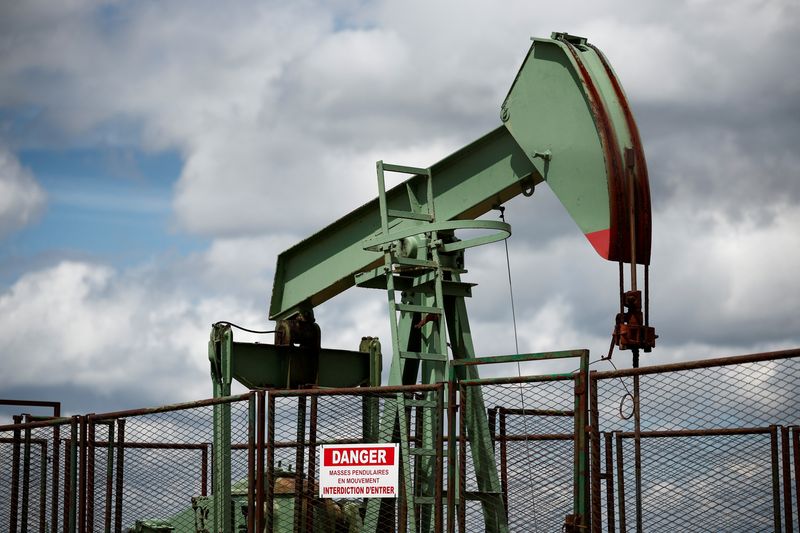By Scott DiSavino
NEW YORK (Reuters) -Oil prices jumped about 4% on Thursday on a spike in U.S. fuel use before Hurricane Milton barrelled across Florida, Middle East supply risks and signs that demand for energy could grow in the U.S. and China.
Brent (LCOc1) futures rose $2.82, or 3.7%, to settle at $79.40 a barrel, while U.S. West Texas Intermediate (WTI) crude rose $2.61, or 3.6%, to settle at $75.85.
In the U.S., the world's largest oil producer and consumer, Hurricane Milton barrelled across Florida, where about a quarter of fuel stations sold out of gasoline and where the storm also knocked out power to more than 3.4 million homes and businesses.
"Closures of several product terminals, delayed tanker truck deliveries and disrupted pipeline movement will likely be affecting supplies well into next week given broad based power outages," analysts at energy advisory firm Ritterbusch and Associates said in a note.
"This vast uncertainty across Florida petroleum infrastructure generally has supported gasoline values," Ritterbusch said. U.S. gasoline futures were leading the energy complex higher, closing up about 4.1% on Thursday.
Crude benchmarks spiked earlier this month after Iran launched more than 180 missiles against Israel on Oct. 1, raising the prospect of retaliation against Iranian oil facilities. With Israel yet to respond, crude benchmarks have eased once more and remained relatively flat through the week.
But investors remained wary, given Israeli Defence Minister Yoav Gallant promised that any strike against Iran would be "lethal, precise and surprising."
Iran is a member of the Organization of the Petroleum Exporting Countries (OPEC) and produced about 4.0 million barrels per day of fuel in 2023, according to data from the U.S. Energy Information Administration (EIA).
Iran is backing several groups fighting Israel, including Hezbollah in Lebanon, Hamas in Gaza and the Houthis in Yemen.
In Lebanon, Israeli strikes on central Beirut on Thursday night killed 11 people and wounded at least 48, Lebanon's health ministry said, as a Lebanese security source said at least one senior Hezbollah figure was targeted in the attacks.
In Yemen, the Houthis said they targeted vessels in the Red Sea (NYSE:SE) and Indian Ocean. The Houthis have launched attacks on international shipping near Yemen since last November in solidarity with the Palestinians in the war between Israel and Hamas in the Gaza Strip.
Gulf states, meanwhile, are lobbying Washington to stop Israel from attacking Iran's oil sites because they are concerned their own oil facilities could come under fire from Tehran's allies if the conflict escalates.
DEMAND IN THE U.S. AND CHINA
In a move that could boost oil demand in the world's second biggest oil consumer, China published a draft law aimed at promoting the development of the private sector, the country's latest step to boost investor confidence amid an economic slowdown.
In the U.S., markets grew more confident the Federal Reserve would cut interest rates in November after data showed an increase in weekly jobless claims and an annual rise in inflation that was the lowest since February 2021.
"The battle between the U.S. jobs numbers and the inflation data with regards to the outlook for Fed policy remains unresolved ... our base case remains 25 (basis point) rate cuts in November and December," analysts at ING, a bank, said in a note.

After hiking rates aggressively in 2022 and 2023 to tame a surge in inflation, the Fed started to lower interest rates in September.
Lower interest rates decrease borrowing costs for consumers and businesses, which can increase economic growth and demand for oil.